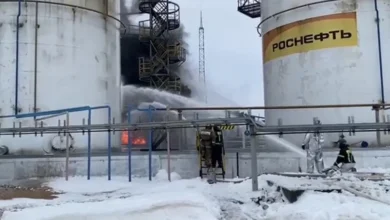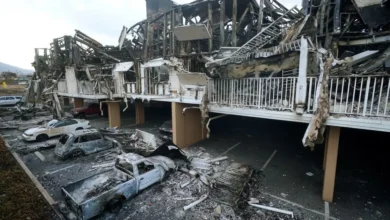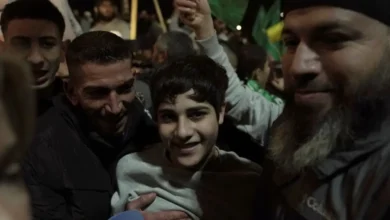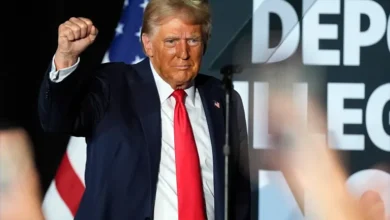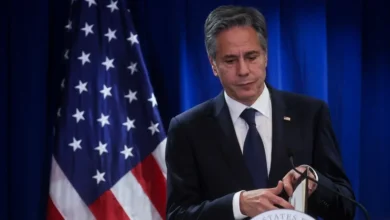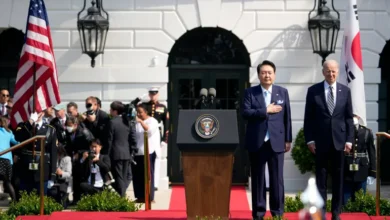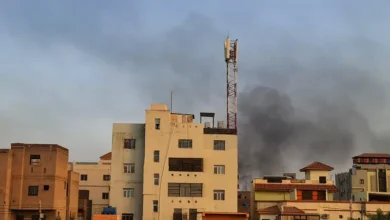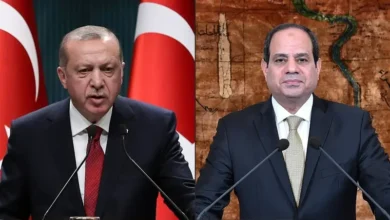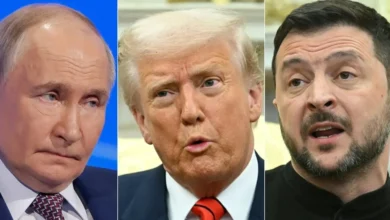‘Used to be a festival’: Why Pakistan is seeing a subdued election campaign
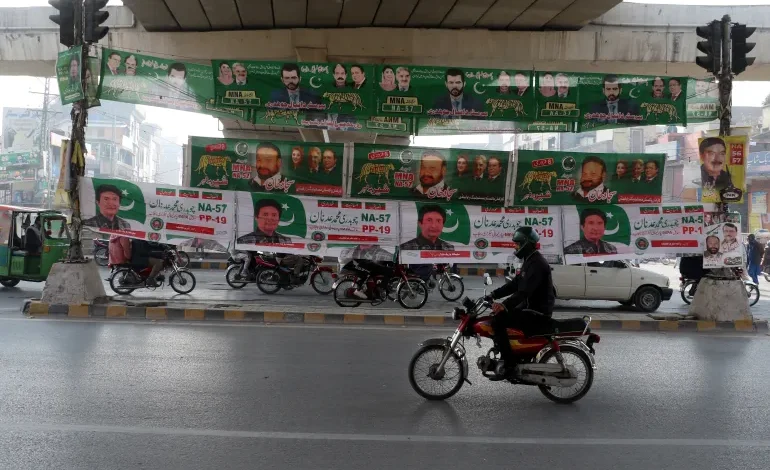
Muhammed Iqrar stands outside his small shop in Muslim Town, a commercial area in Rawalpindi. Something is amiss, he says.
“We have general elections in less than a month, but I don’t recall our area being so dead before,” the 46-year-old says.
“We used to have buntings, banners, flags, music blaring from the speakers put up by different candidates. … It used to be a festival. Now, it’s just so quiet.”
Pakistan, a country of 241 million people, is scheduled to hold its delayed national elections on February 8. But the vote has been tainted by allegations of rigging made by the main opposition party, headed by jailed former Prime Minister Imran Khan.
Khan, by many accounts the country’s most popular politician, has been behind bars since August under various charges. He is also barred from standing in the elections due to his conviction in cases he says are part of a military-backed crackdown on him and his party.
Last week, Khan’s Pakistan Tehreek-e-Insaf (PTI) party was stripped of its election symbol, a cricket bat, through a Supreme Court order, leaving its leaders with no choice but to fight as independents with their own individual symbols. In a country with a literacy rate of 60 percent, election symbols are necessary to help voters identify the parties they support on the ballots.
Two days after the top court’s decision, Maryam Nawaz, daughter of three-time former Prime Minister Nawaz Sharif, kickstarted her party’s campaign on Monday with a rally in the city of Okara in Punjab province, the deciding region in the polls.
‘People are not interested’
But the absence of any real opposition has turned the run-up to the election into a lukewarm affair – something Iqrar says he never experienced in the past.
A supporter of Sharif’s Pakistan Muslim League-Nawaz (PMLN) party, he recalls participating in campaigning, going door to door to distribute flags and inviting people to street meetings.
“We used to get into the swing of things some two or three months before the elections. We put flags of our leaders and tried to engage people. But now it appears as if people are not interested at all,” he says.Maqbool Sharif Toor, a retired government employee, agrees. A resident of Babu Mohalla, a densely populated neighbourhood in central Rawalpindi, Toor says he is uncertain if the elections would be held as scheduled. Earlier this week, Iran fired missiles at Pakistan, allegedly targeting ‘terrorist’ bases, and prompting retaliatory strikes from Pakistan. Those tensions have further injected uncertainty over whether the elections will indeed proceed as planned on February 8.
The 12th general election in Pakistan is being held under a cloud of political and economic instability and a deteriorating security situation.
The vote was originally scheduled in November, but the Election Commission of Pakistan (ECP) said it needed more time to redraw constituencies based on the population census conducted last year.
Political instability in Pakistan began in April 2022 when Khan was removed from power through a no confidence vote in parliament. The former cricketing icon accused the “establishment” – a euphemism for the country’s powerful military – for orchestrating his removal.
